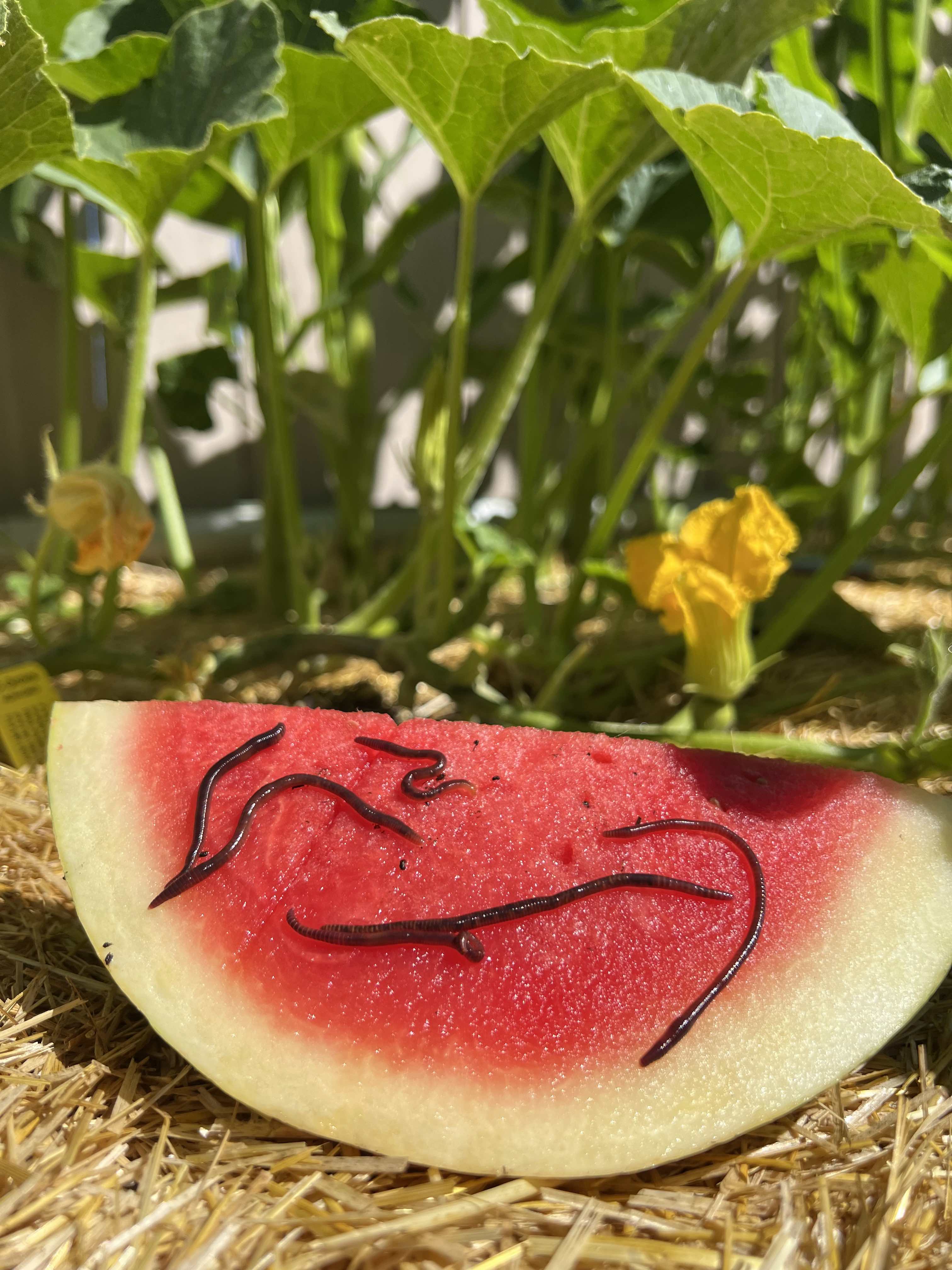Red Wiggler Worms - Effective Decomposers for Your Garden Compost Bin
Wiki Article
Red Wiggler Worms Demystified: Opening the Tricks of Vermiculture for Greener Living and Nutrient-Rich Dirt
In the realm of sustainable techniques for improving soil high quality and advertising eco-conscious living, red wiggler worms play an essential yet usually ignored role. Red Wiggler Worms. Understanding the complexities of caring for these worms, maximizing their environment, and harnessing their spreadings can lead to a greener lifestyle and much healthier dirt for plants to prosper.The Function of Red Wiggler Worms
Red Wiggler worms play a vital duty in composting systems by effectively breaking down natural matter into nutrient-rich spreadings. These ravenous eaters eat a selection of natural materials, such as kitchen area scraps, backyard waste, and paper items. As they feed, the worms' digestive system processes damage down the raw material right into a penalty, dark, and nutrient-dense product known as worm castings or vermicompost.The spreadings generated by Red Wiggler worms are highly useful for dirt wellness and plant development. They are abundant in crucial nutrients like nitrogen, phosphorus, and potassium, which are essential for supporting healthy plant development. Furthermore, worm castings include beneficial microorganisms and enzymes that assist boost dirt structure, increase water retention, and boost nutrient uptake by plants.
Benefits of Vermicomposting

It boosts soil framework, enhances dirt oygenation, and raises soil moisture retention. Vermicompost likewise enhances the soil with important nutrients like nitrogen, potassium, and phosphorus, promoting plant growth and total dirt fertility.
Furthermore, vermicomposting supports sustainable horticulture practices by supplying a chemical-free and all-natural choice to synthetic plant foods. Red Wiggler Worms. This eco-friendly strategy not only enhances the soil however additionally aids lower dependence on hazardous chemicals, advertising a greener and more sustainable means of horticulture
Establishing a Worm Bin
When developing a worm container for vermicomposting, proper arrangement is vital to guarantee the success of the composting process. The very first step in establishing a worm bin is selecting an appropriate container. This can be a plastic container or wood box that gives sufficient area for the worms to move and has correct drainage openings to stop waterlogging. Next, a bed linens material such as shredded newspaper, cardboard, or coconut coir must be contributed to the container. This bedding provides a comfy environment for the worms and helps maintain dampness levels.After including the bedding, present the red wiggler worms to the bin. It is suggested to start with a small number of worms and gradually increase as they multiply. The worms need to then be supplied with food scraps such as fruit and veggie peels, coffee premises, and eggshells. It is vital to avoid adding meat, milk, oily, or salted foods to stop drawing in bugs and creating undesirable odors.
Consistently monitor the moisture degrees other and temperature in the worm container to make certain ideal conditions for the worms. With appropriate arrangement and upkeep, the worm bin will successfully convert organic waste right into nutrient-rich compost for your plants and garden.
Gathering Worm Spreadings
To successfully accumulate nutrient-rich worm spreadings from your vermicomposting system, a methodical harvesting approach is crucial. When it comes time to gather the worm castings, there are a few crucial actions to comply with to make sure a successful process.
Troubleshooting Common Issues
Recognizing and attending to common obstacles that might occur throughout the vermicomposting procedure is vital for maintaining a effective and healthy worm container. Including excess food scraps can lead to a buildup of moisture and acidity in the worm container, possibly hurting the worms. One more concern is undesirable smells rising from the worm container.
Additionally, if the worm population is declining or the worms show up unhealthy, maybe due to ecological stressors such as severe temperature levels or pH degrees. Monitoring these elements and making necessary modifications is crucial for the wellness of the worms. By troubleshooting these typical problems immediately, vermicomposters can ensure a smooth and successful vermicomposting procedure while preserving a prospering worm population.

Verdict
Finally, red wiggler worms play an important function in vermiculture by breaking down natural issue into nutrient-rich dirt. The benefits of vermiculture include greener living and boosted soil you could try here top quality. Establishing up a worm bin is vital for effective vermiculture, and collecting worm spreadings supplies valuable garden compost for horticulture. By understanding and troubleshooting common issues, people can open the secrets of vermiculture for lasting living and much healthier soil.As they feed, the worms' digestive system processes damage down the organic issue into a penalty, dark, and nutrient-dense product understood as worm castings or vermicompost.
The spreadings generated by Red Wiggler worms are extremely valuable for dirt wellness and plant growth. Adding excess food scraps can lead to a build-up of moisture and level of acidity in the worm container, potentially damaging the worms.Additionally, if the worm populace is declining or the worms show up undesirable, it might be due to ecological stressors such as severe temperatures or pH levels. Establishing up a worm container is necessary for effective vermiculture, and gathering worm spreadings gives valuable garden compost for horticulture.
Report this wiki page